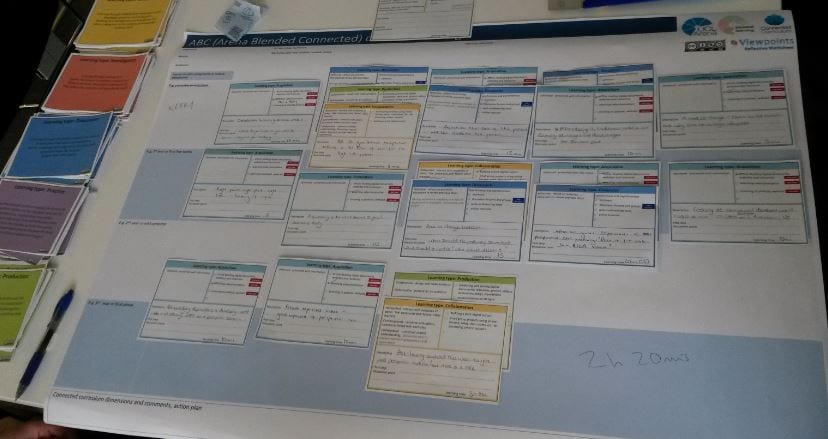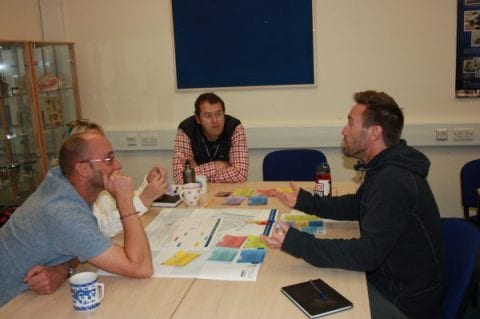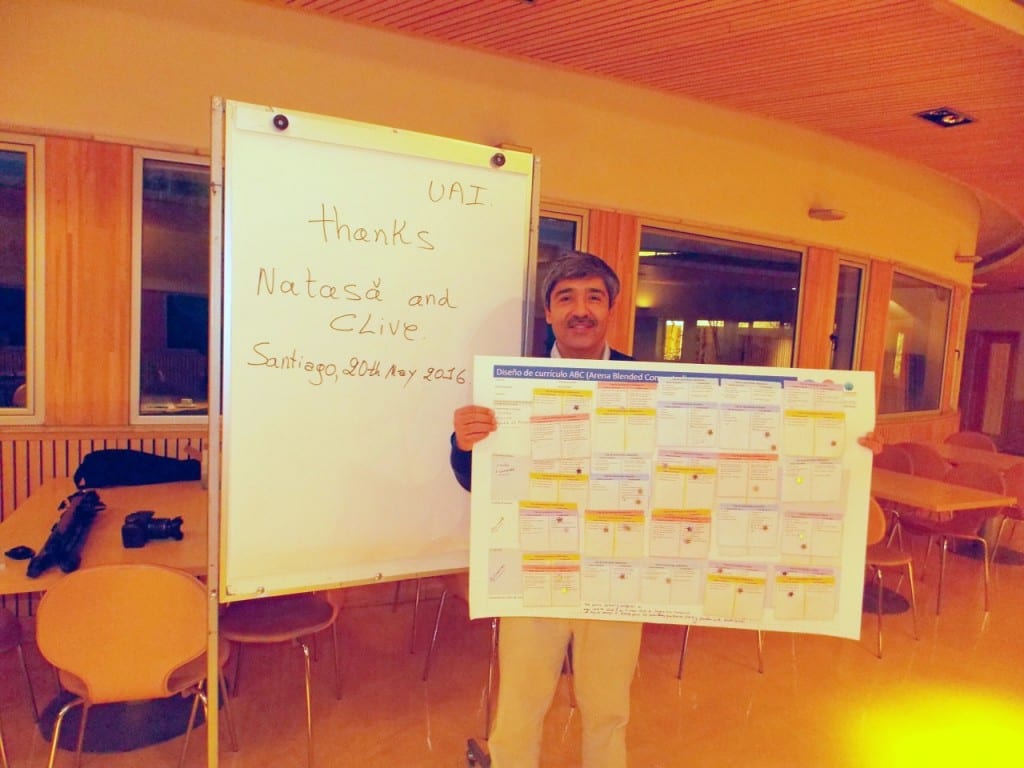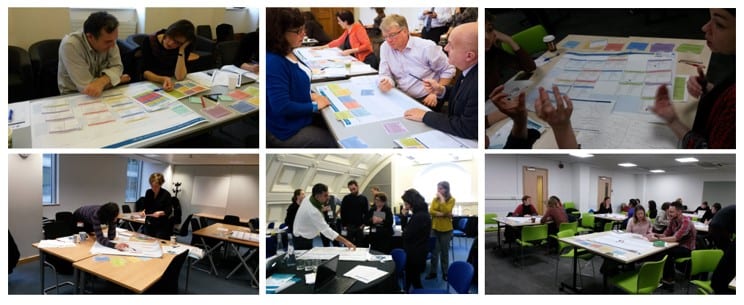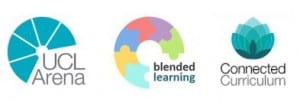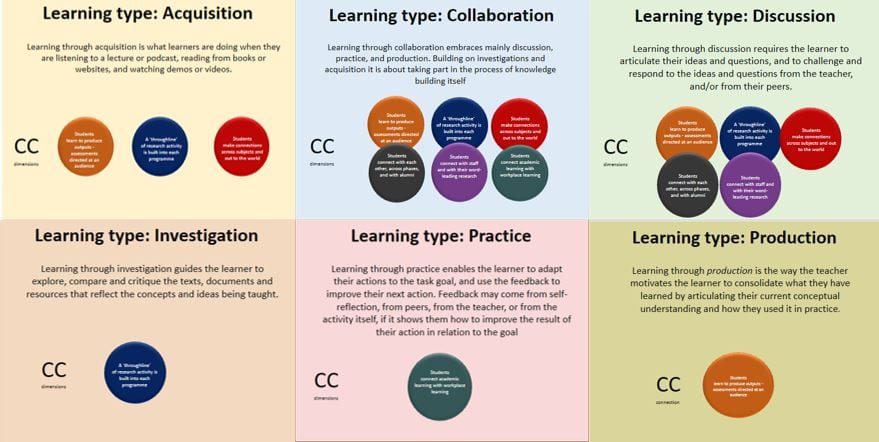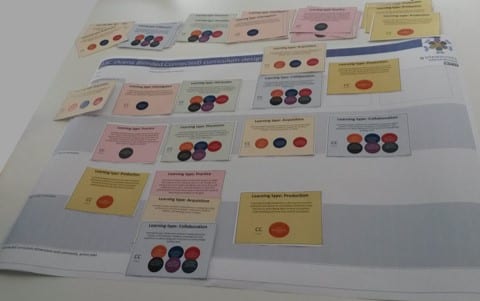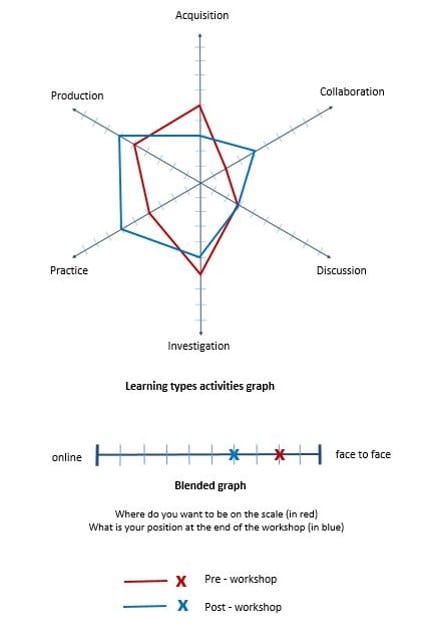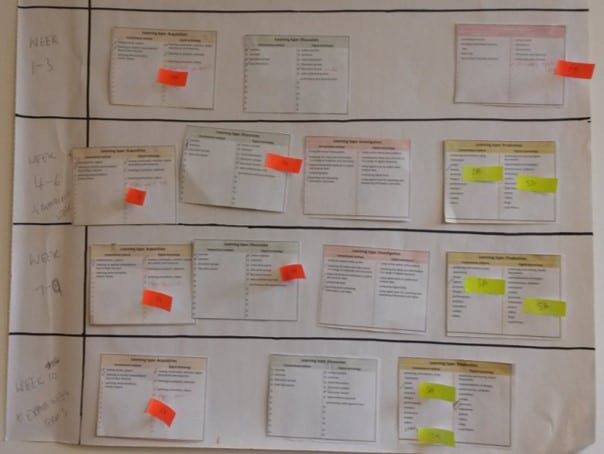Teaching as design – Part 1
By Natasa Perovic, on 14 August 2017
One of the inspirations for UCL’s ABC approach is the learning design work of Peter Goodyear, professor of education at the University of Sydney. Prof Goodyear is to be a keynote at ALT-C in Liverpool next month, but there is a chance to hear his thoughts on “Teaching as Design” in a Soundcloud recorded a few weeks ago for the Melbourne Centre for the Study of Higher Education.
https://soundcloud.com/melbourne-cshe/episode-3-teaching-as-design-with-peter-goodyear
Peter describes design is “an orderly way of approaching a complex problem”. He advocates an activity-based approach – what is it your students are going to do? – to help achieve better educational results and alignment between intended learning objectives, assessment tasks and so on. Activity-based design can also prevent a hasty “leap to a solution”, providing an alternative to a focus around “content” or discipline structure focus. This in turn can help teachers “think more deeply about the educational problem, maybe by reframing it”.
A shift to design methods may not actually be too daunting. Teachers are well used to approach problems in a systematic way and structured approaches do not (and can not) replace experiential or intuitive approaches, design simply makes tacit knowledge more tangible. As we have found with ABC, this clarity is especially valuable when teachers work together for example co-designing in a programme team. Thus,
“…the very act of putting things into words, having a conversation, having a bit of argument, of scrutiny, or having to justify what you’re doing. That’s, I think, inherently beneficial, even if it doesn’t lead to short-term changes or improvements. We become better able to interrogate what we’re doing and justify what we’re doing and think of alternatives”.
In contrast with classical instructional design, this approach provides a blend between the intuitive and the systematic.
Many activities will address a range of learning outcomes (e.g. enhancing practice, autonomy, group work etc.). Educational design can be described as a ‘wicked’ problem, i.e. there is no optimal solution. He later says what actually works is a complex assemblage of components that solves different parts of the problem.
Peter identifies a growing interest in design, “designerly” activity and design capability, due to the growth of virtual learning environments like Moodle coupled with curriculum reform initiatives like the Connected Curriculum at UCL. In combination these necessitate and empower design but also make it more visible at an institutional level and gradually more evident in general discourse.
The importance of local and discipline-specific knowledge however is also recognised, especially when applying generic tools and approaches, though some teaching approaches and tactics transfer surprisingly well from one subject to another.
Could students be involved in the design? Students are already involved now – they respond to and interpret the tasks – but not in a designerly way, so they could be brought in upstream at the curriculum design stage, maybe especially around broader learning objectives and attributes such as helping students becoming more autonomous learners.
A Professional Research Degree Candidates module designed by the students! @ABC_LD @UCLConnectedC @samsmidt @CliveYoungUCL @NatasaPerovic pic.twitter.com/tBGdGO33A8
— ABC LD (@ABC_LD) December 22, 2016
More information about a module designed by UCL students 2017/18
Reflecting on his own research into strategies that really made a difference in terms of the enhancement of teaching and learning, Peter found “working at the level of a whole programme made a great deal of sense, very little point working with individual academics”. He argues programme/department/school level is the optimal unit to work with to establish a more “designerly” culture.
The next section of the interview explores the interesting notion of epistemic fluency.
Does all this not put additional pressure on academics? Peter starkly describes learning design as a “survival strategy”, “…unless as an academic you spend more time on design, you’re going to burn out”. However, team-based teaching and informal engagement by individuals in communities of practice that can share teaching experiences and resources can be hugely beneficial.
References
Goodyear, P. (2015). Teaching as design. HERDSA Review of Higher Education, 2, 27–50.
Goodyear, P. (2005). Educational design and networked learning: patterns, pattern languages and design practice. Australasian Journal of Educational Technology (Online), 21(1), 82-101.
 Close
Close



